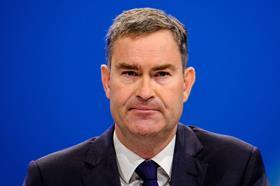Lord chancellor and justice secretary David Gauke has declared war on criminal gangs who have become increasingly brazen about how they smuggle drugs into prison.

In his first public speech since taking office two months ago, Gauke told an audience at the RSA (Royal Society for the Encouragement of Arts, Manufactures and Commerce) in London that drugs are the biggest cause of prison violence.
Gauke said gangs are exploiting the emergence of psychoactive substances such as 'spice' - which can be sold in prisons for more than their street value - and targeting a literally 'captive market'.
Pages of fake legal letters purporting to be from a prisoner's solicitor are soaked in drugs, Gauke said. Paint in supposed children's drawings to parents in prison are laced in liquid psychoactive drugs. Some offenders deliberately breach licence conditions so they can return to prison to smuggle in drugs. 'From the conventional to the cunning ... these criminal gangs will stop at nothing to maintain their access to such a lucrative market,' Gauke said.
The lord chancellor announced that, as part of a £14m investment, the government is setting up an intelligence and serious organised crime team to work with the National Crime Agency to identify gangs and stop their ability to operate in prisons. Technology is being installed in 30 prisons to enable officers to download data from seized phones.
Gauke said he wants to rethink prisoner categories, looking not just at the length of a prisoner's sentence but also their behaviour in prison, ensuring that 'ringleaders' are cut off from their network. He also announced that he is convening a cross-governmental group of senior ministers, with the prime minister's 'full backing', to work across departments to reduce reoffending and its annual £15bn cost to society.
Gauke stressed the importance of showing prisoners that the 'path of further criminality only leads to more punishment and less freedom'. Highlighting the importance of incentives, the justice secretary said he witnessed, during his tenure as secretary of state for work and pensions, how a 'mixture of incentives, support and sanctions' can influence behaviour.



























6 Readers' comments